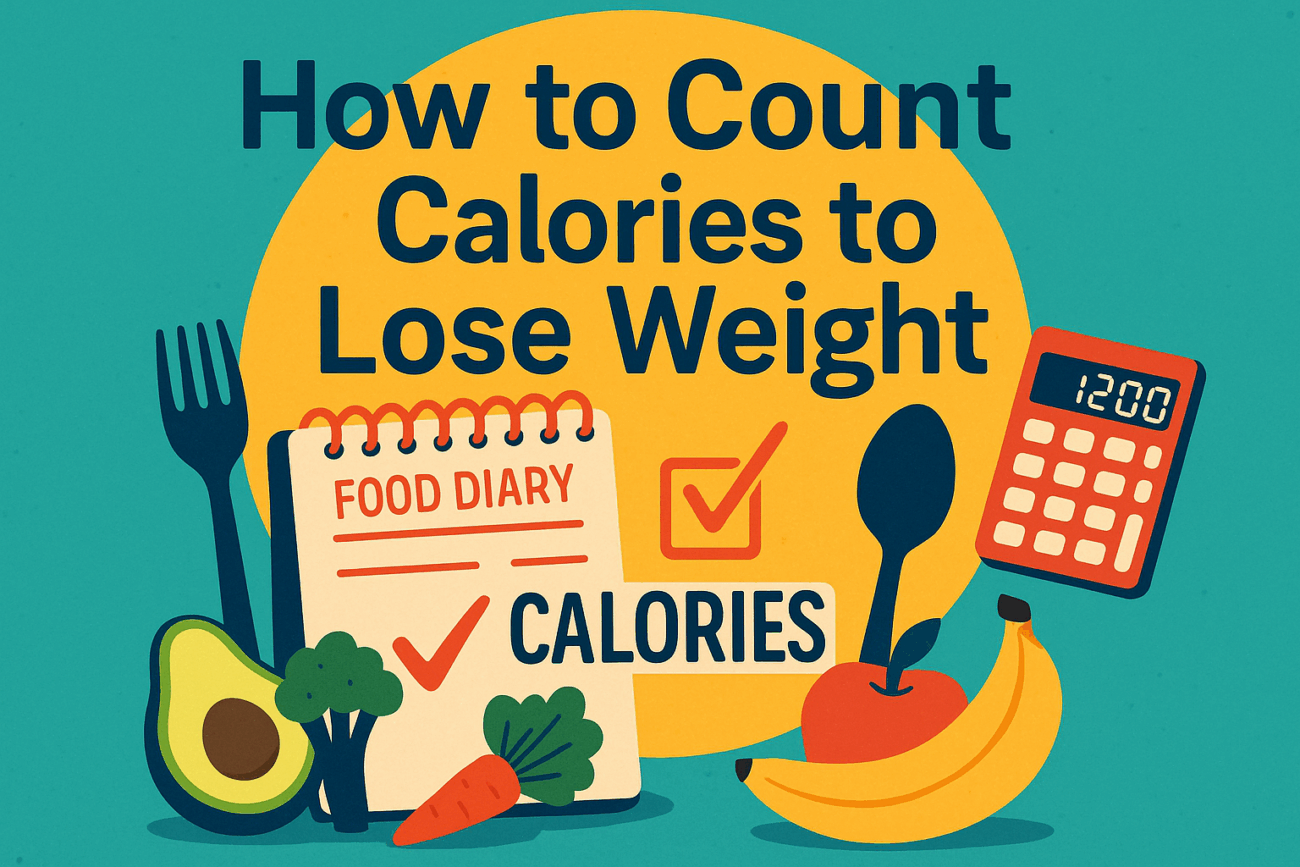Introduction: Why Calories Might Be the Secret You’re Missing
You’ve cut back on snacks. You’ve started walking every day. But the scale isn’t moving. Sound familiar? It’s one of the most frustrating feelings—trying your best, how to count calories to lose weight, but not seeing results.
Here’s what many people overlook: how many calories they’re really eating.
If you’ve ever felt confused or discouraged by your weight loss journey, you’re not alone. The good news? There’s a simple tool that works—calorie counting for beginners. It’s not about obsessing over every bite. It’s about becoming aware of your habits so you can make better choices.
In this easy guide, you’ll learn how to count calories to lose weight, set the right goals, use the best calorie counting app, track your food (without stress), and stay motivated. Whether you’re just starting out or restarting, this step-by-step plan is made for you.
1. What Are Calories and Why Do They Matter?
Calories are the energy your body uses to do everything—from breathing to walking to thinking. When you eat more calories than you use, your body stores the extra as fat. When you eat fewer, it burns stored fat instead.
- BMR (Basal Metabolic Rate): Calories your body uses at rest.
- TDEE (Total Daily Energy Expenditure): Calories used from all activity in a day.
✅ Try this: Use a free calculator to find out how many calories you should eat to lose weight based on your lifestyle and goals.
2. How to Create a Calorie Deficit (The Right Way)
To lose weight, you need to eat fewer calories than your body burns—but not too few.
- Start Small: Cut 500 to 750 calories per day to lose 1–2 pounds per week.
- Stay Balanced: Eating too little can slow your metabolism and lead to cravings.
✅ Reminder: Focus on energy, not just the number. Fuel your body with purpose.
3. Simple Calorie Counting Tips and Tools
Counting calories can be super simple if you know where to start.
- Use the Best Calorie Counting App: Try MyFitnessPal, Lose It!, or Cronometer.
- Read Labels: Pay attention to portion sizes and added ingredients.
- Weigh and Measure: Until you can eyeball amounts, measuring helps a lot.
✅ Tip: Always track small extras like sauces, drinks, or that “just one bite.”
4. Not All Calories Are Equal – Know Your Macros
Protein, carbs, and fats all provide calories but affect your body differently.
- Protein (4 cal/g): Builds muscle and keeps you full.
- Carbs (4 cal/g): Give you energy.
- Fats (9 cal/g): Help with hormones and brain function.
✅ Balance matters: Every meal should have a little protein, healthy fats, and fiber-rich carbs.
5. Meal Planning with Calorie Tracking for Weight Loss
Meal planning is one of the easiest ways to stick to your calorie goals.
- Plan Weekly Meals: Keep it simple and include foods you enjoy.
- Batch Prep: Cook a few meals in advance to stay on track during busy days.
- Dining Out: Look up menu options ahead and choose wisely.
✅ Tip: Use smaller plates—it tricks your brain into eating less without noticing.
6. Track Progress the Smart Way
Don’t just rely on the scale to tell your story.
- Other Signs of Progress: Track your energy, sleep, mood, and how your clothes fit.
- Adjust When Needed: If your weight stalls, you may need to re-check your calorie intake.
✅ Weekly habit: Review your food logs and tweak your plan based on what’s working.
7. Does Calorie Counting Really Work? Yes—If You Stick with It
Some people wonder if it’s worth the effort. The short answer? Yes.
- Why It Works: It brings awareness to your habits.
- What to Avoid: Don’t overthink perfection—aim for consistency.
✅ Stay realistic: Counting is a tool—not a punishment. Use it to guide, not to restrict.
8. Keep Your Mind Right: Motivation and Positivity Matter
Weight loss is a mental game, just as much as a physical one.
- Start Small: Change one thing at a time.
- Celebrate Wins: Better energy? Pants fit better? That’s success!
- Stay Encouraged: One off-day doesn’t erase your progress.
✅ Motivation tip: Write down why you started. Read it whenever you feel stuck.
Conclusion: Master How to Count Calories to Lose Weight—Your Way
So, does calorie counting really work? Absolutely—when done with patience, purpose, and a focus on progress, not perfection.
By learning how to count calories to lose weight, using a simple app, building meals around balanced macros, and tracking honestly, you’ll build habits that lead to real, lasting change.
✨ Start small. Track smart. Move forward—one step and one meal at a time.
Read more about: A List of 14 Best Types of Cardio Exercises to Get You Moving
26 Evidence-Based Weight Loss Tips: Science-Backed Strategies for Real Results
Top 8 best Diet Plans for Effective Weight Loss
CDC: Losing Weight
Harvard Health: Calorie Needs

